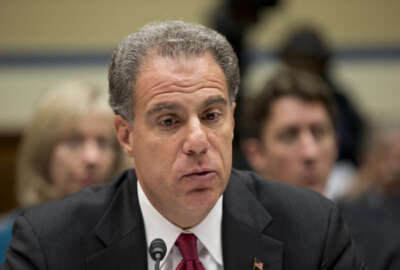

The report highlights four steps IGs must take if they want to embrace a changing government.
Inspectors general highlight areas of improvement for agencies, but a new report from the Partnership for Public Service suggests four steps watchdog themselves can take to keep up with a 21st-century government.
The report, “The Forward-Looking Inspector General,” emphasizes the idea that an IG needs to use the data he or she has, to the extent they can, and then do the work necessary to drive the agency to start collecting the data that’s needed to evaluate a program or performance.
“It is all about data,” said Carlos Otal, national managing partner for public sector at Grant Thornton. Grant Thornton collaborated on the report. “There has to be more ability to share the data. We all know we need better data, but not having it doesn’t mean that you shouldn’t move forward with the review. You should use that, the data that you do have, at least take those small steps which will help drive toward getting the data that’s not there.”
Data-related actions are two of the four strategies the report directs IGs to take if they want to keep up with an evolving government. The steps are:
Otal pointed to the Government Accountability Office as an example of an agency with an IG that is looking at issues like energy, cybersecurity, and IT — things the federal government “needs to be thinking about today in order to be prepared for tomorrow.”
“IGs have tended to be very compliance-oriented, but if they’re going to really make a difference those that are looking to make a difference are trying to be more forward-looking and add value to the agency and helping them drive their mission,” Otal said. “There’s a difference between a ‘gotcha’ IG and IGs that are looking to work more collaboratively toward the mission. And management: are they really taking the time to understand what is the tone of the IG.”
IG management and agency leadership are key to moving in a different direction, Otal said, and it’s important for both to be on the same page. While there is a need to have one another at arm’s length, he said, “they’re both there for the same purpose, and I think that needs to continue to be recognized.”
“They’re there to help the agency optimize its mission, and if they’re both working toward that and they’re both in agreement, then more good things can happen,” Otal said.
An agency leader will take that audit or review, and say ok, what needs to be done differently to move the ball forward, Otal said.
Inspectors general also need to consider the right kind of talent to help move away from compliance-oriented, and more toward forward-thinking offices.
“A forward-looking IG needs more out of the box thinkers, people who can take data and synthesize it and ask questions,” Otal said. “I think the difference between that compliance and the forward-looking also creates a need for a different set of talent, and really a diversity of talent. It’s not that you don’t need the audit lens, because you need the audit lens, the structure, if you’re going to structure your work properly. But you also need folks who don’t think that way, who have a different mindset and can take that data and ask the other questions, so it’s not just the question you’re trying to answer, it’s the three questions that you didn’t ask.”
Copyright © 2024 Federal News Network. All rights reserved. This website is not intended for users located within the European Economic Area.

